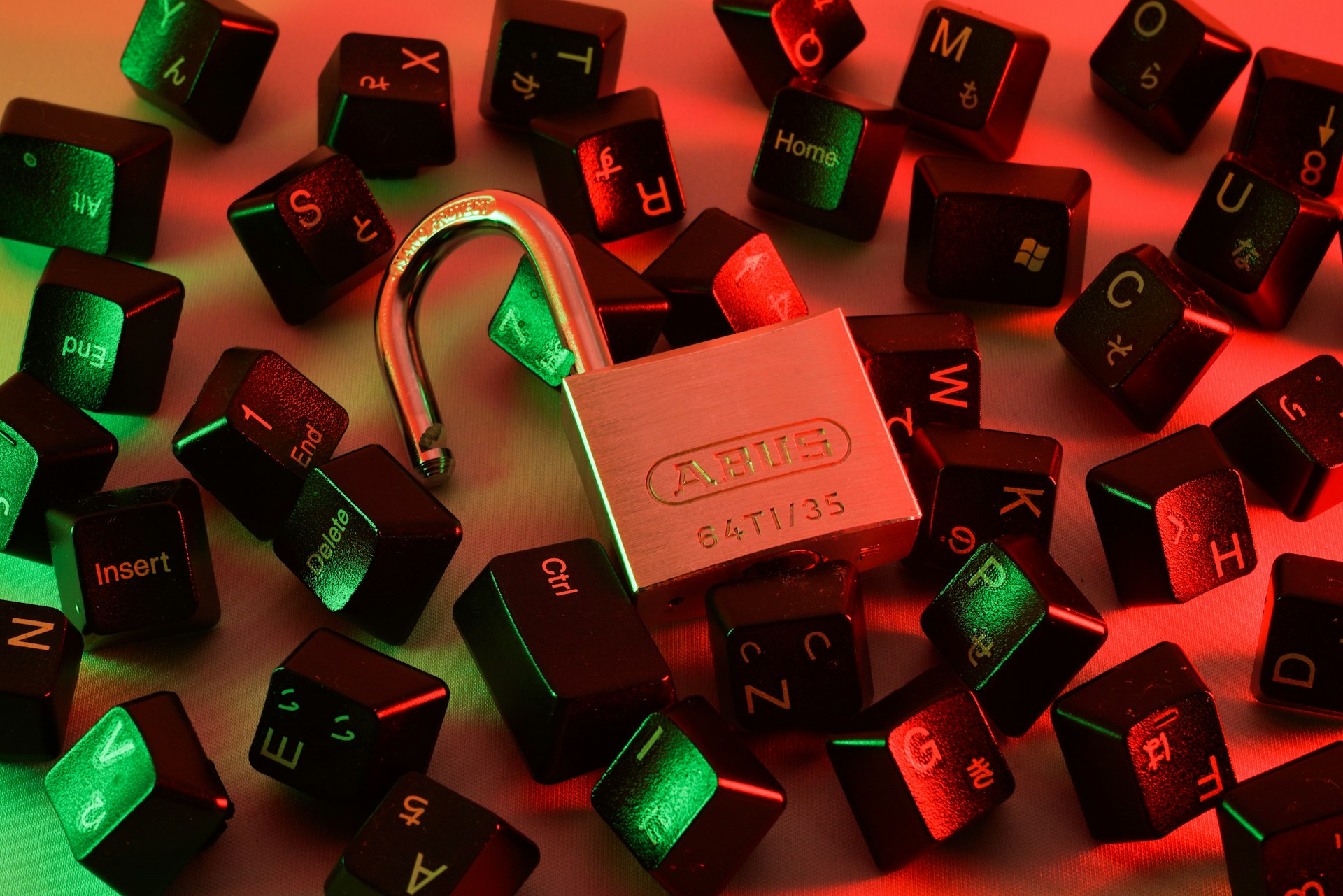Unlocking Value: Navigating Modern Play-to-Earn Gaming Ecosystems

Photo by Erik Mclean on Unsplash
Introduction to Modern Play-to-Earn Gaming Ecosystems
In the rapidly evolving landscape of video games, the play-to-earn (P2E) model is redefining what it means to participate in virtual worlds. Unlike traditional games, where players spend time and money for in-game rewards with no external value, P2E ecosystems empower users to earn assets that carry real-world worth. These assets-ranging from cryptocurrencies to non-fungible tokens (NFTs)-can be traded, sold, or leveraged for further opportunities within and outside gaming platforms [1] . This article provides a comprehensive exploration of how P2E works, practical steps to access these opportunities, the benefits and challenges involved, and strategies for maximizing your success.

Photo by Aleksandar Andreev on Unsplash
How Play-to-Earn Gaming Ecosystems Work
At their core, play-to-earn games are built on blockchain technology, typically utilizing networks such as Ethereum, Solana, or Binance Smart Chain. These networks enable developers to create digital items with verifiable ownership-meaning every sword, skin, or collectible monster you earn is uniquely yours and can be traded or sold as a digital asset [1] . Players are rewarded for in-game achievements with tokens or NFTs, which can be exchanged for other cryptocurrencies or converted into government-issued currency via crypto exchanges.
For example, in Axie Infinity , players collect, breed, and battle creatures called Axies. Each Axie is an NFT, and players can sell them in-game or on external marketplaces. The rewards earned are paid out in the game’s native cryptocurrency, which can be traded for fiat money [1] . The value of these rewards is determined by market demand for the tokens and NFTs, and the skill or effort invested by players.
Key Features and Benefits of Play-to-Earn Games
Play-to-earn gaming ecosystems offer several distinct advantages over traditional gaming models:
- Player Ownership : All in-game assets earned or acquired are controlled by the players, not the game developer. This means gamers can monetize their time and skill directly [5] .
- Multiple Earning Pathways : Players can earn through completing daily missions, winning competitions, breeding in-game characters, trading assets, or even staking tokens for passive income [2] .
- Community-Driven Economies : Value within these games is generated and sustained by the players themselves, fostering engagement and opportunities for collaboration and competition [3] .
- Real-World Value : Earnings take the form of cryptocurrencies or NFTs with value outside the game, supporting a wide range of financial opportunities [4] .
Accessing Play-to-Earn Gaming Ecosystems: Step-by-Step Guidance
Engaging in play-to-earn gaming typically involves the following steps:
- Research and Select a Game : Start by researching popular P2E games such as Axie Infinity, Decentraland, or Gods Unchained. Look for reputable reviews, user feedback, and current active user statistics to gauge community activity and earning potential. You can search for recent rankings or case studies on leading blockchain media outlets and forums.
- Set Up a Digital Wallet : Most P2E games require connecting a cryptocurrency wallet compatible with the game’s blockchain (e.g., MetaMask for Ethereum-based games). Follow official guides from the wallet provider to ensure security and compatibility.
- Acquire Starting Assets : Some games require initial purchases of NFTs or tokens to begin playing. Use only official in-game marketplaces or verified external platforms. For example, you may need to buy starter Axies for Axie Infinity or land in Decentraland. Search for the official game website or documentation to find approved marketplaces.
- Participate and Earn : Once set up, participate in game activities such as battles, quests, or trading. As you progress, you’ll accumulate in-game rewards that can be withdrawn, sold, or used in other blockchain applications.
- Convert Rewards to Fiat Currency : To monetize your earnings, transfer tokens or NFTs to a reputable cryptocurrency exchange that supports withdrawals in your local currency. Major exchanges like Kraken or Coinbase offer these services, but always verify their support for the specific token earned.
Examples of Leading Play-to-Earn Games and Ecosystems
Several games and platforms are recognized leaders in the P2E space:
- Axie Infinity : Players collect, breed, and battle with NFT-based creatures. The game has a robust economy where skilled players can earn regular rewards. You can find extensive guides and community resources by searching for “Axie Infinity official site” and reviewing up-to-date player forums [1] .
- Decentraland : A virtual world where players buy, develop, and monetize virtual land as NFTs. Landowners can create events, rent property, or sell assets for the MANA cryptocurrency [4] .
- Gods Unchained : A trading card game where cards are represented as NFTs, allowing players to earn and trade valuable cards [3] .
To learn more about any specific game, it is best to visit the official website or search for the game’s name plus “official site” to avoid scams. Many leading P2E games have detailed getting started guides, FAQs, and community support channels.
Challenges and Risks in Play-to-Earn Ecosystems
While P2E gaming presents real opportunities, it is important to understand the associated challenges:
- Initial Investment Requirement : Some games require upfront purchases of NFTs or tokens, which can be costly depending on market demand and game popularity. Always verify the legitimacy of the game and marketplace before making any purchases.
- Market Volatility : The value of in-game tokens and NFTs can fluctuate significantly. Earnings are not guaranteed and depend on both game dynamics and broader crypto market trends.
- Security Concerns : Storing assets in digital wallets and interacting with smart contracts introduces risks such as phishing attacks or loss of private keys. Use only official software and enable two-factor authentication where possible.
- Regulatory Uncertainty : Laws and regulations regarding digital assets and cryptocurrencies may change, impacting how you can earn and withdraw funds. Stay informed by following official government advisories or reputable blockchain news outlets.
To mitigate these risks, always use official resources for setup and transactions, and consider consulting with experienced community members or blockchain professionals before making significant investments.
Alternative Approaches and Earning Strategies
If you’re interested in P2E but hesitant about major upfront investments, several alternatives exist:
- Scholarship Programs : Some established players or guilds lend out assets to newcomers in exchange for a share of earnings. To find legitimate opportunities, join official game Discord servers or community forums and look for verified scholarship postings.
- Free-to-Play P2E Titles : Increasingly, developers are launching games that allow players to earn without initial purchases. Search for “free-to-play P2E games” on reputable blockchain gaming news sites to discover current options.
- Skill-Based Competitions : Some platforms offer tournaments or one-off events where top performers can win valuable rewards with no entry fees.
Regardless of approach, always perform due diligence by reading official documentation and community reviews before participating.
Maximizing Your Success in Play-to-Earn Gaming
Success in P2E gaming is a combination of skill, research, and strategic planning. Consider the following practices:
- Stay Informed : Follow official game channels, news updates, and community forums for the latest developments, patches, and earning opportunities.
- Network with Other Players : Many opportunities-such as scholarships, trading tips, or forming in-game alliances-arise from active participation in player communities.
- Diversify : Consider participating in multiple gaming ecosystems to spread risk and capitalize on emerging opportunities.
- Track Your Earnings : Use spreadsheets or personal finance apps to monitor your in-game earnings, expenses, and token values.
Practical Steps to Get Started
To begin your journey in play-to-earn gaming, follow these actionable steps:
- Identify reputable P2E games by searching for “top play-to-earn games” on established gaming publications or blockchain industry news sites.
- Download and secure a compatible digital wallet (such as MetaMask or Trust Wallet) from the official website or app store. Follow security best practices, including writing down your recovery phrase and enabling two-factor authentication.
- Register with the official website of your chosen P2E game. Always confirm the site’s legitimacy by double-checking URLs and looking for community endorsements.
- Acquire any required assets through verified in-game or marketplace channels. Avoid third-party sellers unless they are explicitly recognized by the official game team.
- Engage with the game’s community through official forums, Discord servers, or social media groups to stay updated and find support.
If you encounter any difficulty or uncertainty at a particular step, seek guidance from the official game FAQ or support team. You may also consult reputable blockchain education platforms to learn more about wallet security, NFT trading, and crypto exchanges.
Conclusion
Play-to-earn gaming ecosystems are transforming digital entertainment by enabling players to generate real-world value from their skills, time, and creativity. While the opportunities are compelling, success depends on diligent research, careful participation, and ongoing engagement with the evolving blockchain landscape. By following the steps outlined above and leveraging community resources, you can begin exploring the world of play-to-earn gaming and unlock new avenues for earning and enjoyment.
References
- [1] Kraken (2024). What are play-to-earn crypto games?
- [2] Blockchain App Factory (2024). Play-to-Earn vs. Play-to-Own: Web3 Gaming Models.
- [3] CryptoProcessing.com (2023). Play-to-Earn gaming and its effect on the cryptocurrency ecosystem.
- [4] Ledger (2024). NFT Gaming and Play-to-Earn Explained.
- [5] Chainlink (2024). What Is Play to Earn? Meaning & Examples.



